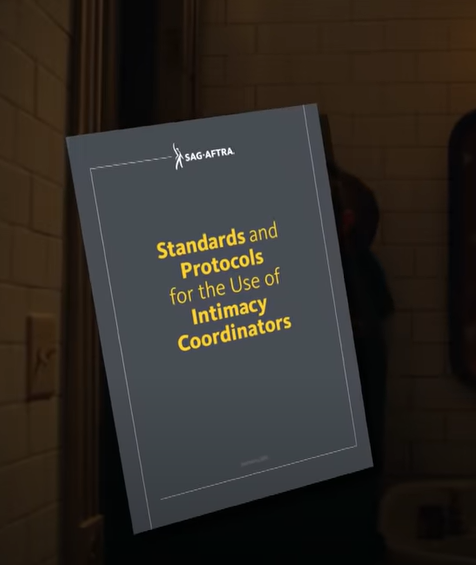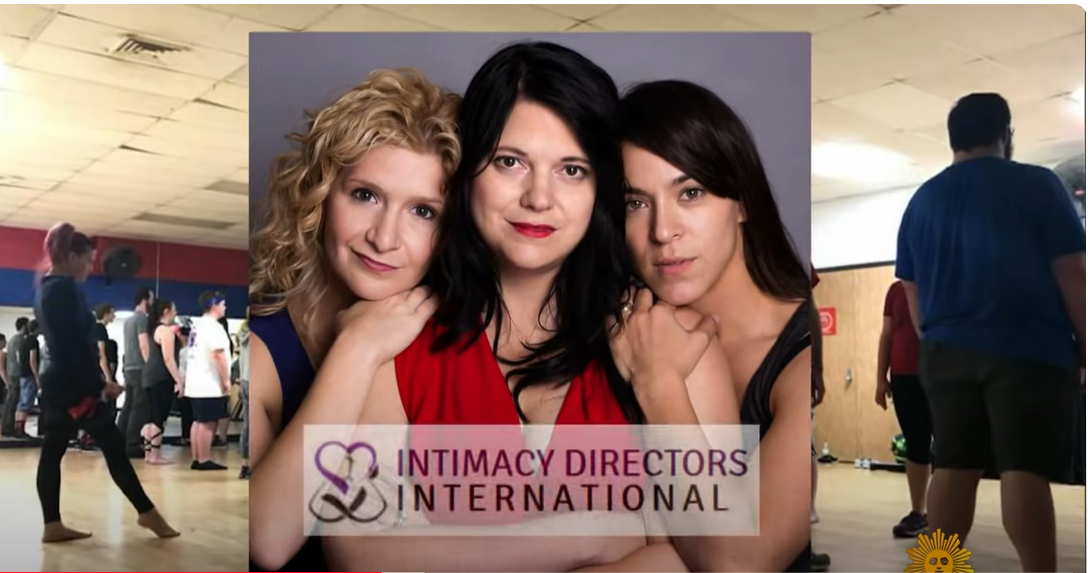When was the last time that you watched a steamy sex scene in a movie and thought about the team that put it together? Hopefully, never, because if you did, then that scene was a flop.
But the reality behind those sexy scenes that seem to be de rigueur in today’s movies is not steamy and not seductive: a specialist has choreographed every sexy look, every tender touch and every lustful kiss. And no, there was no touching of “private parts” despite what your eyes told you.
The “intimacy coordinator” is a role in Hollywood production that most people have never even heard of.
They are professionals who work on film sets to ensure that scenes involving nudity, sex, or intimacy are performed in a safe, respectful, and consensual way. They are trained in areas such as consent, communication, choreography, and trauma awareness, and they act as liaisons between the actors, directors, producers, and crew. An intimacy coordinator’s role is to protect the well-being and dignity of the performers, as well as to help create realistic and authentic scenes that serve the story. This a relatively new role in Hollywood, but one that has become more in demand in recent years, especially after the #MeToo movement exposed the prevalence of sexual harassment and abuse in the industry.

Intimacy Directors International was founded in 2015 and their job is to ensure that every move in a sex scene is controlled and choreographed so that actors are confident that they will not be pressured into doing anything that makes them uncomfortable. They are fully familiar with the array of “modesty garments” that make it possible to stage a steamy sex scene without any actual intimate contact between the actors taking place.
Given the recent nature of the profession it is not surprising that language around their functions is still murky and in transition.
It wasn’t until SAG-AFTRA negotiated their tentative agreement with the Alliance of Motion Picture and Television Producers that language around intimacy coordinators was officially recognized in the contract by both the union and the studios, which members of the negotiating committee, as well as working intimacy coordinators, see as “a big win.”

“This is the first contract where intimacy coordinators are mentioned [in the contract]. I just think it’s very common to have either an uncomfortable or possibly traumatic experience when it comes to this,” negotiating committee member Caitlin Dulany tells Rolling Stone. “And it’s not healthy for us or our sets, so it’s a great victory to have this in our contract.”
“This was a huge win, it was a huge gain, and we really pushed for it,” Dulany says, pointing out that one of the major components worth celebrating is the fact that performers cannot be retaliated against for asking for an intimacy coordinator on set.
It is worth noting that Dulany was one of the people who came forward to accuse Harvey Weinstein of sexual harassment. She is now on the SAG-AFTRA board committee for the prevention of sexual harassment and has been advocating for the inclusion of intimacy coordinators.
“I think for my whole career, I was used to advocating for myself in that situation but that can be very intimidating,” she says. “I think that it would have been lovely to have someone there navigating intimate scenes. In the past, you would stand up for yourself, but you worry. It’s almost like being a warrior or something as opposed to just an open, creative, happy person.”
Alicia Rodis, an intimacy coordinator, sees the inclusion in the SAG-AFTRA contract as a way to acknowledge the permanency of this new role.
“I think at the beginning people were like, ‘Oh, this is just something that’s happening because of #MeToo. Embedding intimacy coordinators into the contract is saying, ‘This is not a practice that is going away. This is not a blip, this is part of the cultural change of the industry,’” Rodis says.












